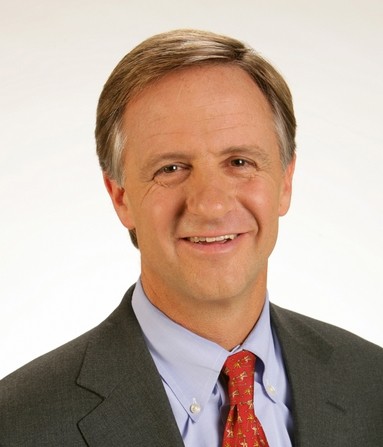The fat lady has not yet sung on Governor Bill Haslam’s proposed gas-tax bill to pay for overdue infrastructure and roadway improvements. Which is to say, the issue remains in doubt — perhaps technically, perhaps more definitively, depending on action in the legislature this week.

Governor Bill Haslam
But state Representative Terri Lynn Weaver (R-Lancaster) last week expressed herself in both vocal and parliamentary fashion to abort the governor’s proposal, which would impose a 7-cent increase in current gasoline and diesel taxes, and the Haslam measure’s prospects may end up considerably shriveled as a result. Weaver, chairman of the state House transportation subcommittee, basically — and perhaps temporarily — junked the governor’s tax as a funding mechanism for the planned infrastructure improvements. Instead, she contrived to substitute an arrangement whereby a quarter-cent of the state’s sales tax revenues would be shifted instead to the Department of Transportation. The change would not only alter the Haslam infrastructure measure, it would alter the fundamental way in which the DOT has historically been financed — by user fees like those paid by motorists at the gas pump.
Work on rehabbing the state’s infrastructure seems destined to happen, but the underpinning for it will change significantly if Weaver’s changes — or something like them — hold up in subsequent actions by the full Transportation Committee, due to consider the bill this week, and the House Finance Committee, as well as in separate Senate actions.
Much of the burden of paying for the long-overdue improvements will be transferred from users of vehicles — who comprise a relatively upscale slice of the population, as well as a disproportionately large number of motorists and truckers passing through. On top of that, the governor’s proposal — called IMPROVE — will reduce the “regressivity of the state’s tax system.” That’s the finding of Professor Donald Bruce of the University of Tennessee Boyd Center for Business and Economic Research.
Bruce cites evidence that the relatively upscale group which spends considerable time behind the wheel ends up spending nearly twice as much on gasoline and motor oil as those who are poorer. Conversely, the more mobile upscale population devotes disproportionately less of its resources on food. Haslam’s proposal, which involves offsetting tax reductions, including a lowering of the grocery sales tax, would shift a larger share of the tax burden onto the relatively affluent.
If the IMPROVE plan for funding infrastructure improvements is thwarted by the same ultra-conservative opponents of Haslam’s ill-fated Insure Tennessee program for Medicaid expansion, it is not just the state at large that will suffer. Sooner or later, Tennesseans will surely catch on to who it is that is holding them back, and then these reactionaries of the legislature’s GOP super-majority will find themselves paying the piper — and not just at the gas pump.